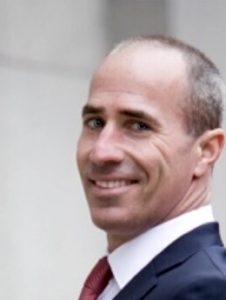BCEM Diplomate Advancing “Senior Friendly” Emergency Care
 Adam Perry, MD, a Diplomate of the Board of Certification in Emergency Medicine (BCEM), found that in the nonurban communities where he worked, advanced practice providers tended to treat younger and lower acuity patients. The majority of patients he has seen over the past 10 years are older adults with complex health issues. Realizing that most of his work is actually “emergency geriatrics,” he completed a fellowship in a geriatric medicine fellowship, training that coincided with rapid growth in the “geriatric ED” movement.
Adam Perry, MD, a Diplomate of the Board of Certification in Emergency Medicine (BCEM), found that in the nonurban communities where he worked, advanced practice providers tended to treat younger and lower acuity patients. The majority of patients he has seen over the past 10 years are older adults with complex health issues. Realizing that most of his work is actually “emergency geriatrics,” he completed a fellowship in a geriatric medicine fellowship, training that coincided with rapid growth in the “geriatric ED” movement.
Since completing his fellowship, Dr. Perry, formerly a community emergency medicine physician in eastern Pennsylvania, has been practicing, teaching, and consulting widely in geriatric emergency care.
There are critical reasons why it’s important to tailor EM care for geriatric patients, Dr. Perry says. Consider two patients – a 55-year-old who has arrived from work with chest pains and an 86-year-old who has dementia and several other medical problems, takes 15 medications and arrives from an assisted living facility with a transfer from listing the chief complaint as “weak/dizzy.” Whether the former patient has a STEMI, PE, biliary colic, or a HEART score of 1, the evaluation and management “is fairly protocolized and evidence-based,” Dr. Perry says. The 55-year-old would be admitted if the diagnosis or risk level requires inpatient resources, and discharged if not.
The modern emergency department model allows physicians to rapidly complete a “diagnose, treat, and disposition” sequence, he says, but it does not serve the 86-year-old as well. In this patient’s case, the emergency staff would be uncertain of the chief complaint, the medications, or pertinent medical history. Furthermore, disposition is complicated because it’s unclear if the benefits of hospitalization outweigh the risks. As a result, delayed or missed diagnosis, iatrogenesis, and potentially avoidable hospitalizations are all common.
“Guidelines and emerging evidence suggest that such patients benefit from a comprehensive approach that includes specific education and a team approach with clinicians, nurses, social workers, and caregivers,” Dr. Perry says.
Emergency care is critical because EDs make the admission decision and set the trajectory for further care. Given that hospital care accounts for one-third of total health care spending, and older adults represent about one-half of hospital admissions, transforming geriatric emergency can have an enormous impact on health care utilization.
“A major focus of the geriatric ED model is decreasing potentially avoidable hospitalizations by developing safe disposition alternatives,” Dr. Perry states. “A practical example is the ED developing relationships with rehab or assisted living facilities for direct placement of patients who do not require admission but cannot be safely discharged home alone.”
According to Dr. Perry, demographic trends and payment reform are driving unparalleled innovation in acute care for older adults with complex issues, including in telemedicine, community paramedicine, and urgent care home visits. Simply put, he says, payers, providers, residential and nursing facilities, and health care systems are developing models to keep older adults with complex issues out of the emergency department.
The hospital-based ER remains the default model for urgent for vulnerable older adults, offering access to EM knowledge and skills, advanced diagnostics, emergent treatments, and risk mitigation. Dr. Perry believes that an interesting next step would be non-hospital-based Acute Assessment and Transition Centers serving complex, frail older adults who face significant hazards from hospitalization but who would benefit from rapid specialized diagnostics, treatment, and care coordination. Such a model would complement the existing innovative models and give patients yet another alternative to hospital-based emergency care.
If you want to know more about Dr. Perry’s work in developing better models of ER care for geriatric patients, or would like more information about the BCEM – a Member Board of the American Board of Physician Specialties® (ABPS) – contact the ABPS today.










